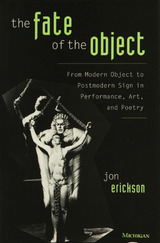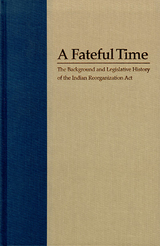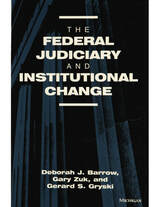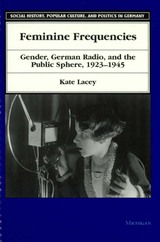
Edited by leading scholars in the field and with contributions from important scholars of postwar theater, this volume considers, for the first time, the whole body of Wesker’s work. It includes chapters on Wesker’s reception in Europe, his representation of and attitude towards women, his relationship to his Jewish origins and identity, and his attitude toward politics and community. Building on existing scholarship, drawing extensively from the Arnold Wesker archive at the Harry Ransom Center at the University of Texas at Austin, and introducing new insights and perspectives, this important new essay collection remedies the recent critical neglect of the dramatist.
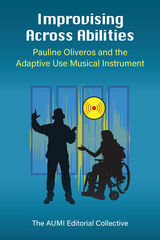
This book, which contains wisdom from many who have been affected by their work with the instrument and the people who use it, is a representation of how music and extemporized performance have touched the lives and minds of scholars and families alike. Not only has AUMI provided the opportunity to grow in listening to others who may speak differently (or not at all), but it has been used as an avenue for a diverse set of people to build friendships with others whom they may have never otherwise even glanced at in the street. By providing a space for every person who comes across AUMI to perform, listen, improvise, and collaborate, the continuing development of this instrument contributes to a world in which every person is heard, welcomed, and celebrated.
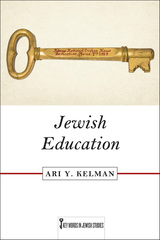
At the heart of Jewish Education is an innovative alphabetical primer of Jewish educational values, qualities, frameworks, catalysts, and technologies which explore the historical ways in which Jewish communities have produced and transmitted knowledge. The book examines the tension between Jewish education and Jewish Studies to argue that shifting the locus of inquiry from “what people ought to know” to “how do people learn” can provide an understanding of Jewish education that both draws on historical precedent and points to the future of Jewish knowledge.
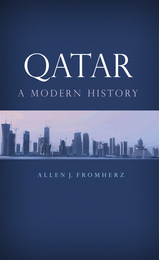
What role does Qatar play in the Middle East and how does it differ from the other Gulf states? How has the ruling Al-Thani family shaped Qatar from a traditional tribal society and British protectorate to a modern state? How has Qatar become an economic superpower with one of the highest per capita incomes in the world? What are the social, political, and economic consequences of Qatar’s extremely rapid development?
In this groundbreaking history of modern Qatar, Allen J. Fromherz presents a full portrait that analyzes Qatar's crucial role in the Middle East and its growing regional influence within a broader historical context. Drawing on original sources in Arabic, English, and French as well as his own fieldwork in the Middle East, the author deftly traces the influence of the Ottoman and British empires and Qatar’s Gulf neighbors on the country prior to Qatar’s meteoric rise in the post-independence era.
Fromherz gives particular weight to the nation's economic and social history, from its modest origins in the pearling and fishing industries to the considerable economic clout it exerts today, a clout that comes with having the second-highest natural gas reserves in the region. He also looks at what the future holds for Qatar's economy as the country tries to diversify beyond oil and gas. Furthermore, the book examines the paradox of Qatar where monarchy, traditional tribal culture, and conservative Islamic values appear to coexist with ultra modern development and a large population of foreign workers who outnumber Qatari citizens.
This book is as unique as the country it documents—a multi-faceted picture of the political, cultural, religious, social, and economic make up of modern Qatar and its significance within the Gulf Cooperation Council and the wider region.

What role does Qatar play in the Middle East, and how does it differ from the other Gulf states? How has the ruling Al-Thani family shaped Qatar from a traditional tribal society and British protectorate to a modern state? How has Qatar become an economic superpower with one of the highest per-capita incomes in the world? What are the social, political, and economic consequences of Qatar’s extremely rapid development?
In this groundbreaking history of modern Qatar, Allen J. Fromherz analyzes the country’s crucial role in the Middle East and its growing regional influence within a broader historical context. Drawing on original sources in Arabic, English, and French as well as his own fieldwork in the Middle East, the author deftly traces the influence of the Ottoman and British Empires and Qatar’s Gulf neighbors prior to Qatar’s meteoric rise in the post-independence era.
Fromherz gives particular weight to the nation’s economic and social history, from its modest origins in the pearling and fishing industries to the considerable economic clout it exerts today, a clout that comes from having the region’s second-highest natural gas reserves. He also looks at what the future holds for Qatar’s economy as the country tries to diversify beyond oil and gas. The book further examines the paradox of Qatar where monarchy, traditional tribal culture, and conservative Islamic values appear to coexist with ultramodern development and a large population of foreign workers who outnumber Qatari citizens.
This book is as unique as the country it documents—a multifaceted picture of the political, cultural, religious, social, and economic makeup of modern Qatar and its significance within the Gulf Cooperation Council and the wider region.
READERS
Browse our collection.
PUBLISHERS
See BiblioVault's publisher services.
STUDENT SERVICES
Files for college accessibility offices.
UChicago Accessibility Resources
home | accessibility | search | about | contact us
BiblioVault ® 2001 - 2026
The University of Chicago Press



